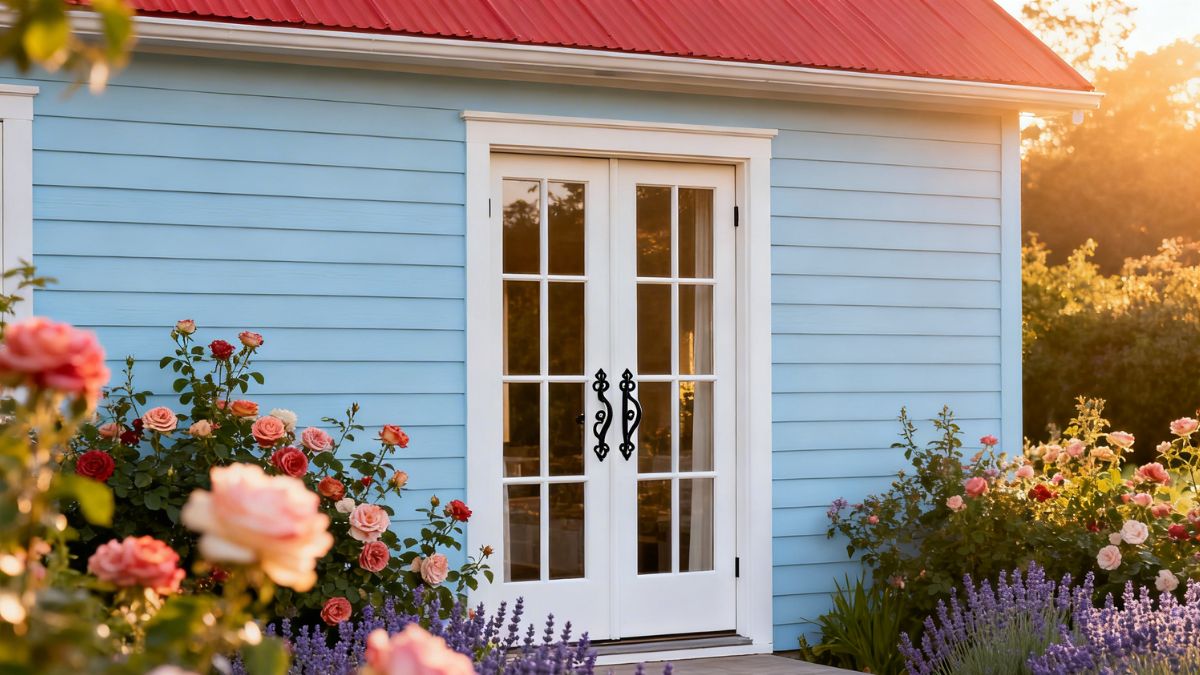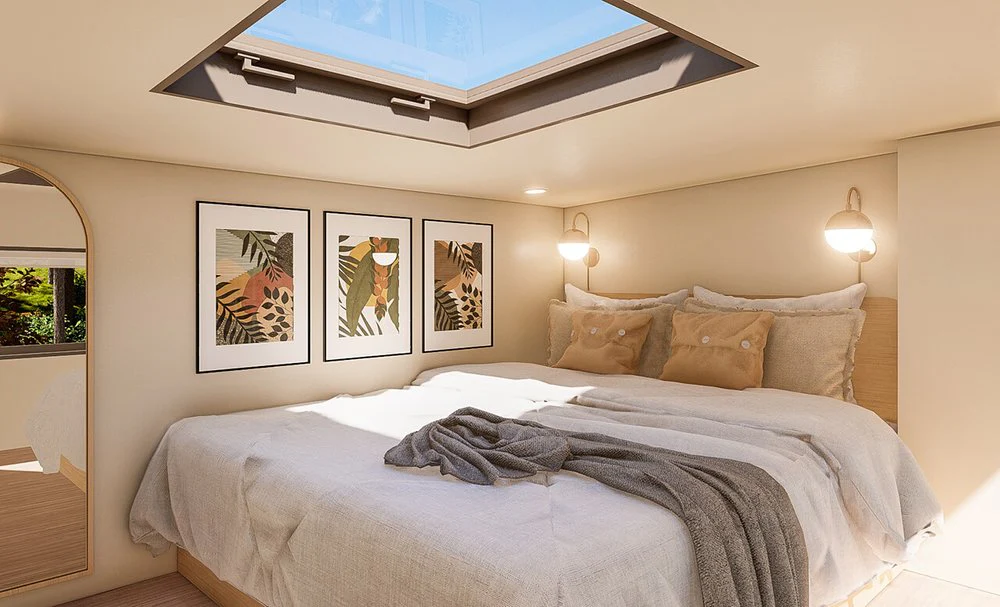Top Considerations For First-Time International Turnkey Home Buyers

Image Source: Canva
Purchasing a turnkey home internationally sounds like a fairy tale, as it offers a ready-to-live-in property without the headache of weeks growing into months of renovations done abroad. Sounds like a dream come true, right?
The waking truth however, is that first-time international buyers need to navigate several many key factors to ensure a successful investment. Understanding the local real estate market is the cornerstone of any purchase, as markets can vary significantly.
The legal and regulatory framework differs across countries, making it your top priority to comprehend foreign property laws and tax implications, which let’s face it - will be a project.
Financial readiness is another vital aspect, with current mortgage rates just below 8% for a 30-year loan, the highest in over 20 years.
Proper preparation, including securing financing and hiring local legal expertise, can significantly smooth the purchasing process and help first-time buyers make informed decisions
Top Locations For Turnkey Properties
Before we move into the legal and real estate nitty gritty of it, let's first window shop a little and go over locations that offer great turnkey property options. Austraila, Thailand, UAE and Spain are just a few of the of the possibilities, so don’t stop there.
Australia
Australia remains a prime destination for turnkey property investments due to its stable economy and high demand for rental properties.
Key cities like Sydney and Melbourne offer lucrative opportunities. Australia, Thailand and UAE are by no means the end of the list, just our top three choices.
- Sydney: Sydney is Australia’s largest city and economic powerhouse. Thus it has a strong demand for turnkey rental properties driven by its vibrant job market, international population, and cultural attractions. The median property price in Sydney is high, reflecting its desirability, but rental yields are equally robust. This balance provides investors with strong returns on investment, supported by low vacancy rates due to the city's appeal to both locals and expatriates.
- Melbourne: Youth drives cultural diversity and educational institutions everywhere and so it is with Melbourne. Melbourne has a strong rental market, especially among students and young professionals due to it's educational prominence. The city’s property market is slightly more affordable than Sydney’s,given that it's a smaller city, yet it still offers excellent rental yields and potential for capital appreciation. The slightly more affordable market is natural, since Melbourne is a smaller city than Sydney.
Thailand
Next up it’s Thailand! It might not be the frist place your think about when you think turnkey property, but that is the trick. The market is just emerging which means the time to jump in is now.
- Bangkok: As Thailand’s capital and largest city, Bangkok offers a real estate market almost as vibrant as the city itself, with significant rental demand. That means there's a lot of turnkey property both already existing and in development. Property prices in Bangkok are relatively affordable compared to other major Asian cities which is a big plus ,and rental yields can be quite attractive. This makes Bangkok a top choice for investors looking to capitalize on high rental demand and steady property value growth.
- Phuket: Known for its tourism industry, Phuket presents unique opportunities for turnkey property investors. The island’s popularity as a holiday destination ensures high occupancy rates for rental properties or an ever ready property for you. Real estate in Phuket includes a range of options, owing to its tourist range, from luxurious villas to budget-friendly apartments, catering to various investor profiles. The ongoing growth in tourism supports strong rental yields and potential capital appreciation
United Arab Emirates (UAE)
Our third example, the UAE is considered a jewel of the east in turns of turnkey property and we'll now look into why.
- Dubai: Dubai is renowned for its luxury real estate market and significant rental demand. Of course, everyone thinks of luxury and opulence but let's not forget that there is a market for the less affluent as well and the time to invest in a turnkey property is now.. Dubai’s investor-friendly policies and infrastructure make it a top destination for turnkey investments.
- Abu Dhabi: If you want political stability for your turnkey investment, Abu Dhabi is the place to go. Or invest, for that matter. While it is the capital City of the UAE it does pale ever so slightly in comparison to Dubai, yet that too can be useful for the right turnkey opportunity, of which there are many.Abu Dhabi’s political stability and progressive policies enhance its appeal to international investors.
Spain
For our last, but certainly not least example we will be going to Spain. Spain offers cultural variety, European charm and turnkey property options aplenty.
- Costa del Sol: Stunning coastline, mild climate and a turnkey property what more could you ask for.Costa del Sol is a favorite among expatriates and tourists, ensuring strong demand for rental properties as with all tourist examples we covered. The area offers a range of properties from beachfront apartments to luxurious villas, providing good rental yields and potential for value appreciation.
- Barcelona: We are not picking favorites, but if we were to pick a favorite it would be Bacelona hands down. Vibrant cultural and nightlife, a steady influx of new residents and an expansive development plan makes Barcelona literally the place to invest in turnkey property. The city's diverse real estate options and relatively affordable prices compared to other Western European cities make it an attractive investment destination.
- Madrid: We're aware we've played up Bareclona, but we can't be unfair to Madrid. Being the Capital city of Spain business thrives and so that the real estate market. Madrid’s property market provides excellent rental yields and long-term investment potential
.jpeg)
Legal And Real Estate Considerations For First-Time International Turnkey Home Buyers
And for the promised nitty gritty parts of it. Investing in turnkey properties internationally can be rewarding, but don’t think it will go without navigating complex legal and financial hurdles. These hurdles should not be deterrents of course, since buying a home locally or a vacation home has its considerations .
Let’s go over some crucial legal and real estate considerations to ensure a smooth purchase.
Property Ownership Laws
Different countries have distinct laws governing foreign property ownership. For instance, in Thailand, foreigners cannot own land outright and must establish a company majority-owned by Thai nationals to do so.
They can, however, purchase condominiums directly, provided that foreign ownership in the building does not exceed 49%). In Mexico, foreigners need a bank trust to buy property within restricted zones (50 km from the coast or 100 km from the borders)
Legal Representation
Hiring a local real estate attorney goes without saying. They can navigate the legal landscape, ensure compliance with local laws and safeguard your interests.
An attorney can verify that the property has a clear title and that there are no encumbrances or disputes which is among the top of the list of things you do not want. In countries like Spain, legal advisors can help you understand and navigate additional local requirements, such as obtaining a Foreigners Identification Number (NIE)
Property Taxes And Additional Fees
Understanding the tax implications is the cornerstone of getting an international home.
In countries like Spain, foreign buyers must pay property transfer tax, which varies by region (generally between 6-10%), annual property taxes (IBI), and capital gains tax on the profit made when selling the property. On top of this, there might be stamp duty and notary fees.
Double Taxation Agreements
Make sure to avoid double taxation, and you can do that by checking if there is a Double Taxation Agreement (DTA) between the country where you are purchasing the property and your home country.
If you're in luck and such an agreement exists, these agreements can prevent you from being taxed twice on the same income, which is a financial lifesaver. The United States has DTAs with many countries, which can help mitigate tax liabilities for American investors abroad.
Financing Options
Securing a mortgage for international property can be challenging but not impossible. We personally, don't prefer the option but that's up to you.
Some international banks and local lenders in investment-friendly countries offer mortgages to non-residents. For example, in Portugal, non-residents can obtain mortgages covering up to 70% of the property value. Similarly, in Spain, banks might finance up to 60-70% for non-residents .
Currency Exchange
Ah, the fascinating world of currency exchange. Currency fluctuations can significantly impact the cost of your investment. To manage this risk, consider working with a currency exchange specialist who can help secure favorable exchange rates.
Opening an international bank account can also simplify managing currency exchanges and transactions. Platforms like OFX and TransferWise offer competitive rates and can help mitigate currency risk.
Wrapping Up
Investing in turnkey properties internationally can be a highly rewarding venture if approached with thorough preparation and due diligence. Understanding local property laws, securing reliable legal representation, and managing currency risks are essential steps in this process. Additionally, exploring financing options tailored to non-residents can provide better financial leverage, enhancing the overall investment potential.







.jpg)

